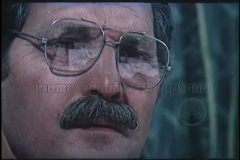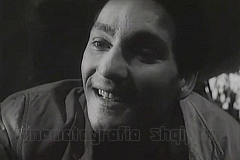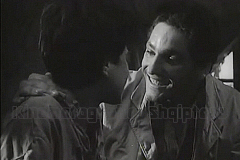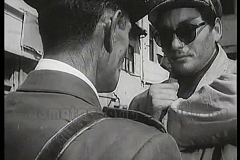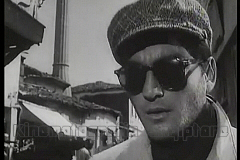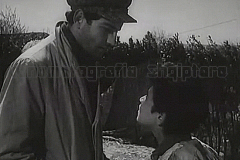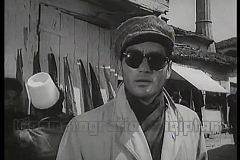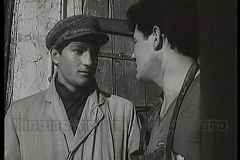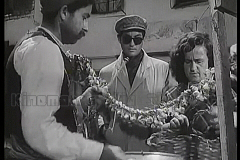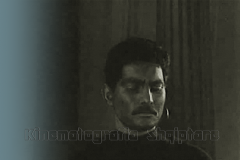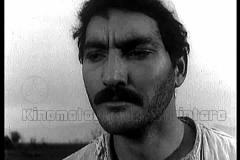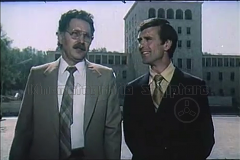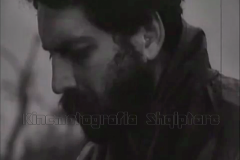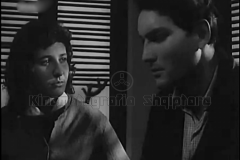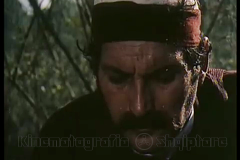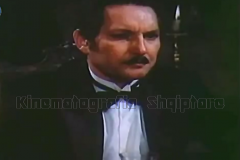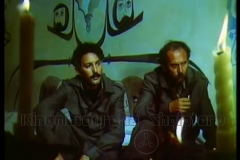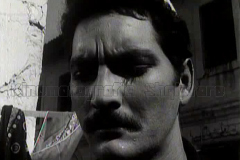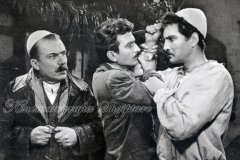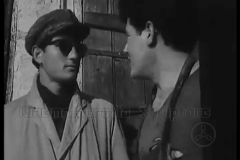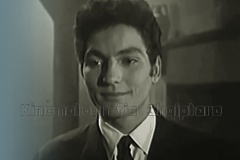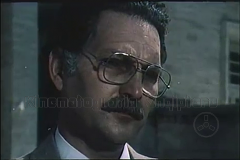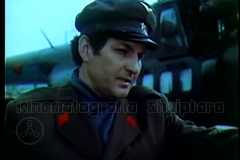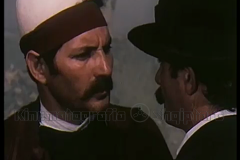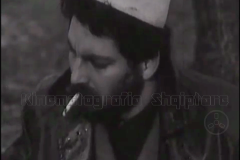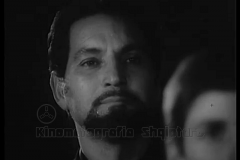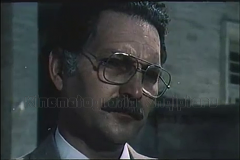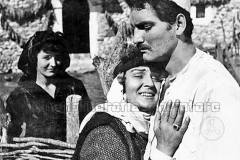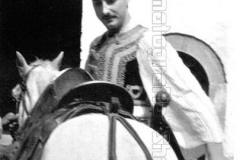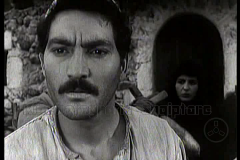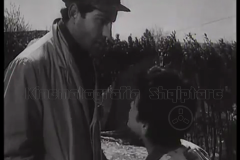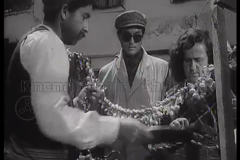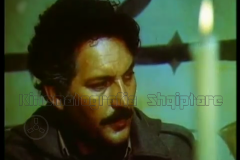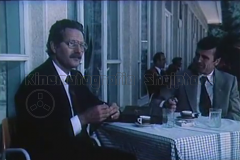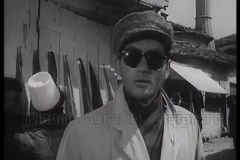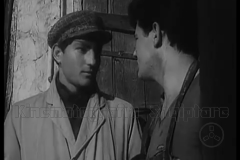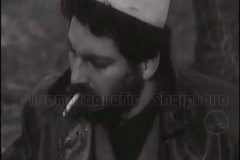Mario Ashiku
Director, actor and well-known lecturer in performing arts.
Born in Shkoder on July 27, 1939. Ashiku completed his studies as an actor in 1964 at “Alexander Moisiu” High School. In 1959, when he was still a student, Ashiku played the first Arbeni`s role in the movie “Fortuna”, and even a leading role, in this joint Albanian-Soviet production, with the directors J. Ozerov and K. Dhamo.
Having not only charm and special acting talent, Mario is sought after by different directors. In 1964, “Leka” plays another leading role in the film “Our Land”, where he presents the troubled spirit of the mountaineer, amid the drama and mastery of the tones of a “harsh” psychologist, he has given us the troubled world to this mountain.
 After finishing his university studies, he immediately started working as an actor in the Popular Theatre, performing impressive characters on the stage of this theater, for example Benedict in Shakespeare’s comedy, “Much Ado About Nothing” (1964), Fabrizio in the comedy “Mirandolina” (1966) by Goldoni.
After finishing his university studies, he immediately started working as an actor in the Popular Theatre, performing impressive characters on the stage of this theater, for example Benedict in Shakespeare’s comedy, “Much Ado About Nothing” (1964), Fabrizio in the comedy “Mirandolina” (1966) by Goldoni.
Ashiku stands out with the figure of Gjeta in the drama “Cuca e maleve” by Loni Papa in 1967. In this character, Mario managed to reveal, with his appearance, actions and other words, the wildness of social segments that are both patriarchal and criminalized and hidden behind the “canon of the mountains”.
Mario Ashiku has created another artistic character that is well remembered, that of Shpend Dragobia, a brave Kosovar who accompanied the escort of Ismail Qemali towards the independence of Albania in Vlora, in the epic-heroic film made by Kinostudio in 1982, “Nentori i dyte”, one of the pearls of Albanian films.
For the next few years, he will be at the High Institute of Arts as a teacher of acting, next to the well-known director Kujtim Spahivogli.
Then he was arbitrarily transferred to Estrada of Pogradec, working here until 1986. Later, after, from 1986 to 1990, he went to the “Aleksander Moisiu” theater in Durres.
In both troupes, both in Pogradec and in Durres, he staged many variety shows, dramas and comedies from which we can mention “Leprosy”, “The shadow of the other”, and of course one of the shows with successful, the one entitled “The star without name” by M. Sebastian, was first staged with the students of the High Institute of Arts in 1972 (where the young actor Agim Qirjaqi stands out in the role of Marin Miroju). This performance was repeated with the Durres theater troupe in 1989 (this time with the actor Mirush Kabashi in the same role).
In addition to numerous theatrical roles, he won 13 roles in feature films. But, regardless of how fate dealt with him, Mario Ashiku is remembered today for a multitude of roles in cinematography.
After the film “Fortuna” he played the role of Astrit in the film “Debatiku” in 1961. He will be Leka in “Our Land” in 1964, Ndre Gjetani in “Commissar of Light” in 1966, Mr. Maluka in “Dawn of the Great Season” in 1981, Shpend Dragobia in “The Second November” 1982, Veseli in “The Trap / Gracka”, Prince in “The Uninvited” 1985, the German commander in “Tre njerez me guna”, Professor Kallmi in “Nothing is forgotten” etc.
With a troubled life during the past system, Mario Ashiku has been able to preserve a light within him, which makes him remember the past beautifully today. In the artistic individuality of Mario Ashiku as a director, the desire for a coherent human behavior and appearance, probably as vital as possible, is noticed, from where the element of spontaneous involvement of the actor in the circumstances of the artistic figure appears as the primary goal.
In 1992, the actor resumed work at the Academy of Arts, standing out for his culture, high pedagogical requirements, artistic finesse, clarity of thought and professional ethics.
Mario Ashiku holds the title “Professor”
FILMOGRAPHY:
Furtuna, (1959)
Debatik, (1961)…Astriti
Our Land, (1964) …. Leka
Commissar of light, (1966) …. Ndre Gjetani
Skëterrë 43, (1980)
Dawns of the Great Season – (1981)…mr. Maluka, the lawyer in Tirana
Second November, (1982)…Shpend Dragobia
The Trap / Gracka, (1983)…Veseli
Tre njerez me guna, (1985)…Nazi Commander
The Uninvited, (1985)…Prince
Nothing not forgotten, (1985)….Professor Kallmi
Whiteness, (1986)……aviation officer
Murder in the hunt, (1987)…..
 Theater
Theater
25/05/1969 — “19 Days” by Fadil Paçrami
13/02/1969 — “Friends” by Bashkim Kozel
29/06/1966 — “Three Rifle Shots” by Ibrahim Uruç
04/03/1966 – – “Great insurmountable wall” Xhan – Hun
19/06/1963 — “The sinking of the team” of Kornejcuk….
Published for the first time since July 2016 and revised several times in the years next.
________________
Albanian Cinematography in activity since 2013
Reference: “Directors, Academy of Sciences, Arts Study Center”, Tirana, 2003, p.193. / “Memory that does not sleep – writings about Theater and other arts -Vatra-Tirane, 2006, p. 66. / “Encyclopedia, Albanian Theater and Cinema” – Toena -2009, p. 35-36. / Photos are a contribution of administrators.
Follow us: Blog: https://albaniancinematography.blogspot.com/ Facebook: https://www.facebook.com/ksh.faqjazyrtare Dailymotion: https://www.dailymotion.com/kinetografiashqiptareartisporti YouTube: https://www.youtube.com/channel/UCDRYQ5xCyGkfELm3mX8Rhtw
Discover more from Albanian Cinematography - Sport
Subscribe to get the latest posts sent to your email.

